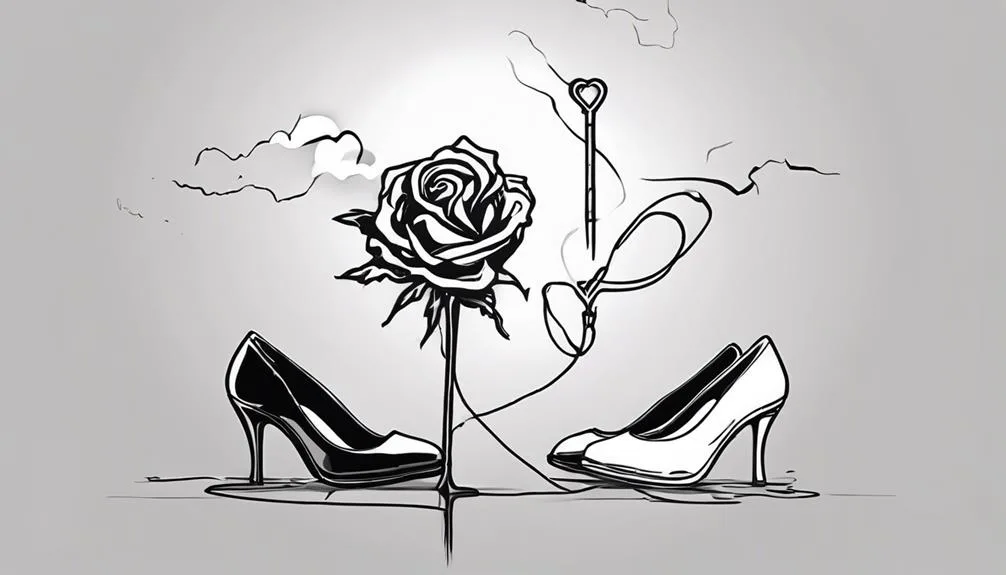Wondering if it's time to end a relationship can be tough. If you're constantly disrespected, can't trust your partner, or feel completely drained, these are clear signs that something's not right. Knowing when to walk away is important for your own happiness.
Even though it's hard to let go of what you're used to, recognizing these signs can help you make the best decision for yourself.
Let's look at why these signs are important.
Key Takeaways
- Persistent disrespect and belittlement in a relationship erode self-worth and trust.
- Constant lack of trust and secrecy highlight fundamental relationship issues.
- Continuous unhappiness and neglect of personal needs signal it's time to move on.
- Frequent arguments and unresolved issues indicate deep-seated problems that may be irreparable.
Constant Disrespect

Persistent disrespect is a clear sign it's time to reconsider your relationship. When you're constantly on the receiving end of verbal insults, it's not just an occasional disagreement; it's a pattern that undercuts your self-worth and happiness.
If these insults aren't confined to private moments but spill over into public belittlement, it's even more detrimental. This behavior not only humiliates you in front of others but also isolates you from friends and family, making you feel unsupported and alone.
The impact of such actions goes beyond momentary embarrassment; it erodes your confidence and trust in your partner. You don't have to accept being treated poorly. Recognizing this pattern is the first step toward deciding you deserve better.
Lack of Trust
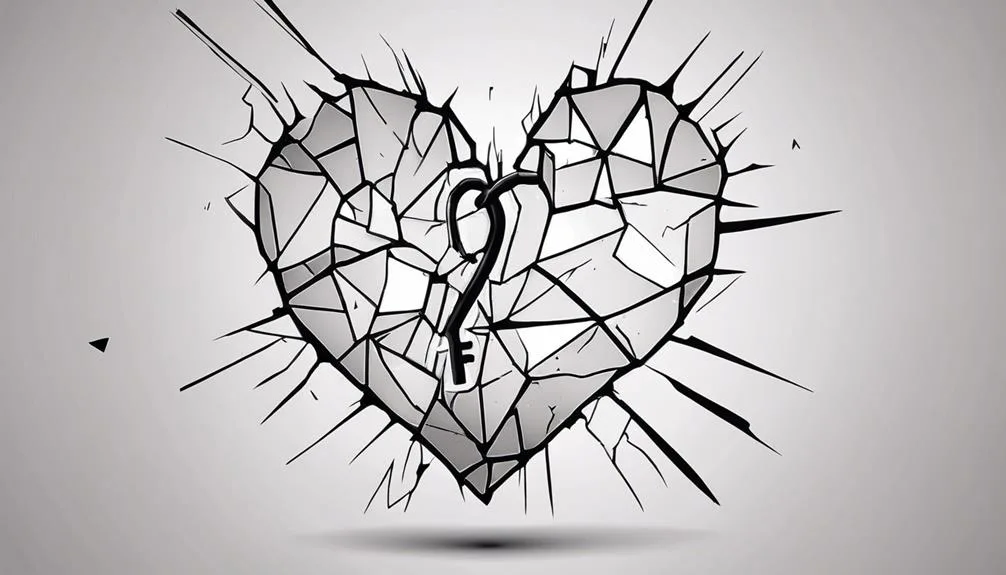
Just as constant disrespect signals a need to reassess your relationship, a lack of trust fundamentally undermines its foundation. When trust erodes, you're left questioning every action and word, making it impossible to build a healthy, thriving partnership.
Key indicators of trust issues include:
- Secret keeping: You've noticed an increase in secrecy, with more things being kept from you without a clear reason.
- Unexplained absences: Your partner often disappears without explanation, leaving you to wonder where they are or what they're doing.
- Reluctance to share: They're hesitant to share personal details or plans, making you feel excluded.
- Constant need for reassurance: You find yourself constantly needing to check in or verify their stories due to growing doubts.
Continuous Unhappiness
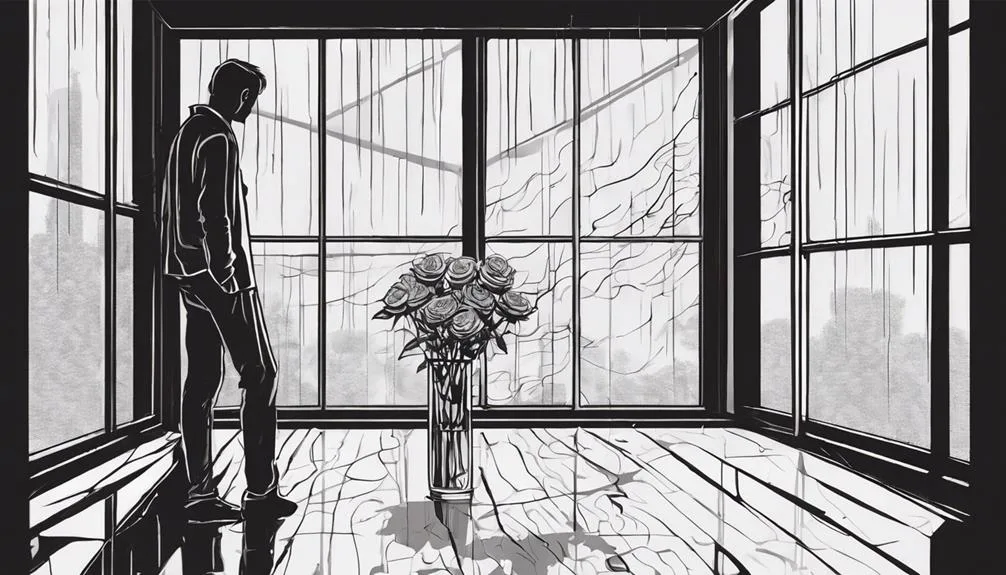
If you're constantly feeling down and joyless in your relationship, it may be a sign it's time to reconsider its future. Relationships should bring happiness and growth, not a continuous state of unhappiness.
When you realize that the spark has dimmed and lost joy becomes the norm, it's important to address these feelings. It's not just about the fleeting moments of happiness but the overall sense of well-being that's also important.
Additionally, if you find yourself neglecting your own needs and desires in pursuit of making the relationship work, it's a clear indicator of self-neglect. This isn't healthy. A partnership should enhance your life, not lead you to forsake your own well-being.
Different Life Goals

Another sign it's time to reassess your relationship is when you and your partner have vastly different life goals. It's essential for a couple's long-term success to align on major life decisions. When you're not on the same page, especially regarding career aspirations and family planning, it can lead to significant conflicts down the road.
Here's what to watch out for:
- Career aspirations that don't match, leading to potential relocation or time commitment issues.
- Family planning differences, including whether to have children.
- Divergent views on where to live, be it city versus countryside.
- Conflicting lifestyle choices, such as a desire for travel versus a preference for stability.
If you find these discrepancies in your relationship, it might be time to have a serious conversation.
Persistent Arguments
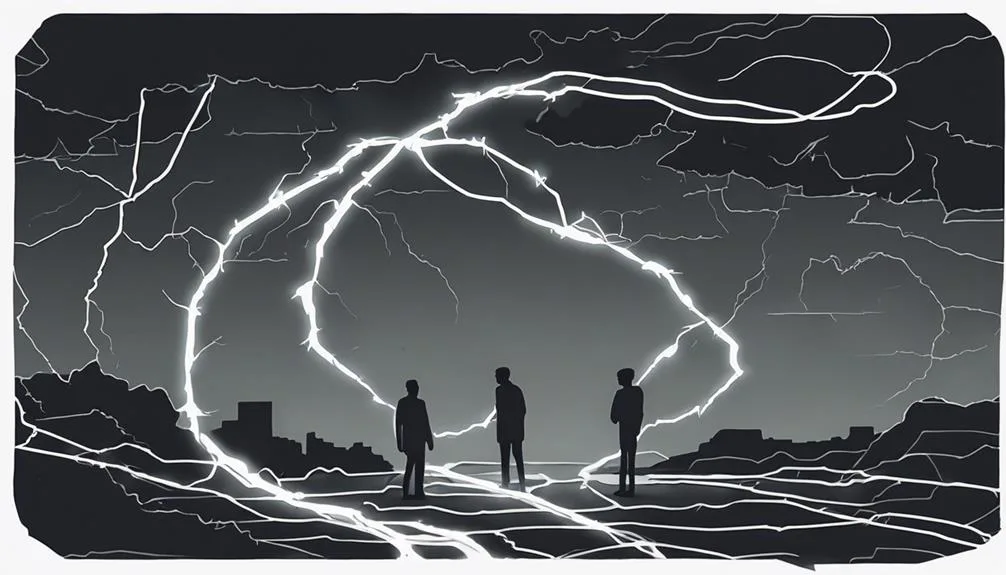
Constant arguments in a relationship can signal deeper unresolved issues, suggesting it's time to reassess your partnership. When you find yourself in a cycle of repetitive disputes, it's often a sign of a communication breakdown, where both partners struggle to effectively convey their needs and feelings.
| Sign | Impact |
|---|---|
| Frequent Misunderstandings | Leads to frustration |
| Raising Old Issues | Sign of unresolved issues |
| Avoiding Conversations | Communication breakdown |
| Feeling Drained after Talks | Emotional exhaustion |
These signs indicate that the underlying issues aren't being addressed, leaving both of you feeling stuck and unsatisfied. If attempts to resolve these issues don't lead to improvement, it may be an indication that the relationship isn't working.
Emotional or Physical Abuse
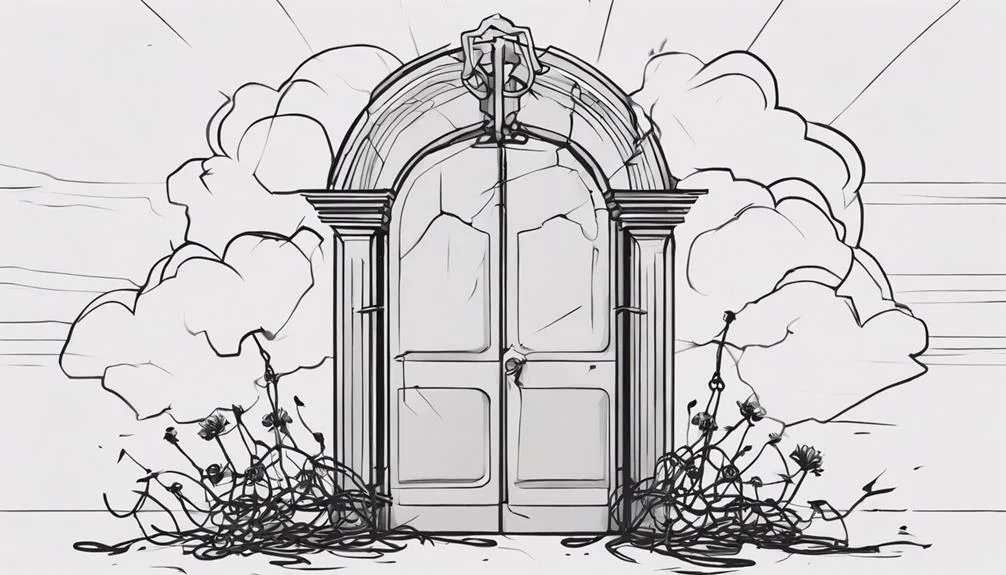
While persistent arguments can erode the foundation of a relationship, emotional or physical abuse signifies a clear line has been crossed, demanding immediate attention. Recognizing this is vital for your well-being. Here's what you can do:
- Acknowledge the Abuse: Accepting it's happening is the first step to taking action.
- Create a Safety Plan: Think about safe places you can go and how you can get there if you need to leave quickly.
- Build Support Networks: Lean on friends, family, or organizations specializing in domestic abuse for emotional support and practical advice.
- Seek Professional Help: Consider talking to a counselor or therapist who can guide you through the emotional complexities of leaving an abusive relationship.
Feeling Drained
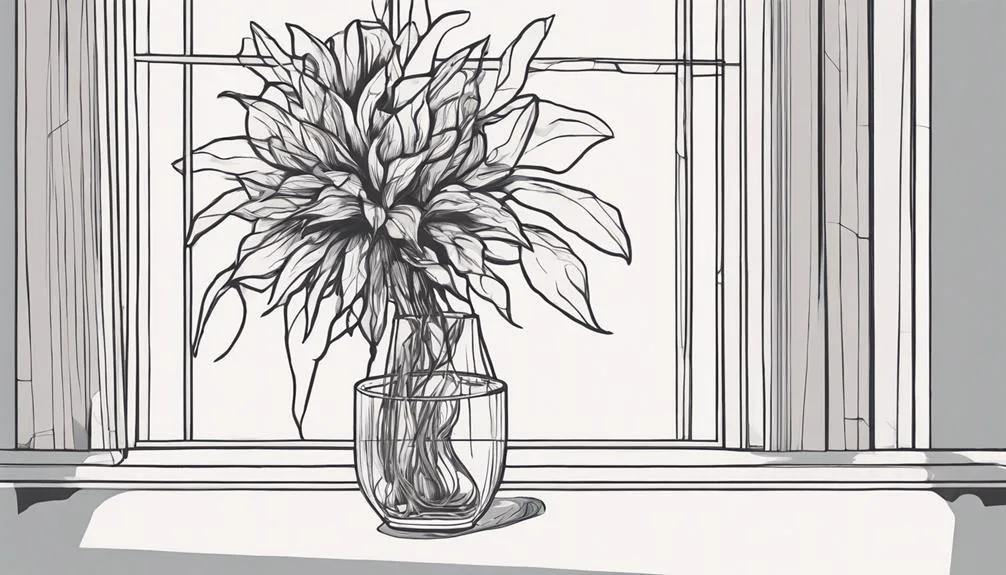
If you consistently feel exhausted and emotionally depleted by your relationship, it's a sign that something's amiss. This energy depletion isn't just about being physically tired; it's a profound sense of being emotionally drained, as if the relationship is a one-way street where you're the only one investing effort.
It's essential to recognize that a healthy partnership should invigorate you, not leave you feeling like you're running on empty. This isn't merely about the occasional bad day; it's a persistent state that can severely impact your well-being.
While support deficiency might seem like a parallel issue, the focus here is on how the lack of mutual energy exchange can signal a deeper problem, urging you to reassess the relationship's sustainability.
Lack of Support
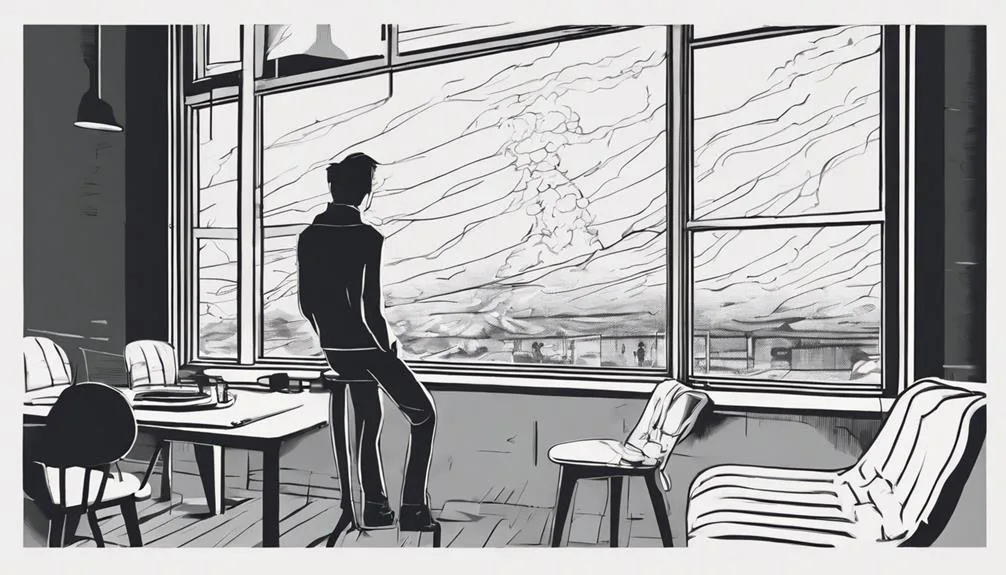
Another sign you might need to leave a relationship is if you're not getting the essential support you need. It's essential for partners to lift each other up, especially during tough times. If you're facing career stagnation or social isolation because your partner isn't there for you, it's a red flag.
Consider these points:
- Career Stagnation: Your partner doesn't encourage your professional growth or celebrate your achievements.
- Social Isolation: You're feeling cut off from friends and family, lacking the encouragement to maintain these connections.
- Emotional Disconnect: There's a lack of empathy or understanding for your feelings and ambitions.
- Lack of Encouragement: You're missing that cheerleader in your corner for both small victories and significant challenges.
Neglecting these aspects can lead to a deeper disconnect, making it essential to assess the support in your relationship.
Infidelity
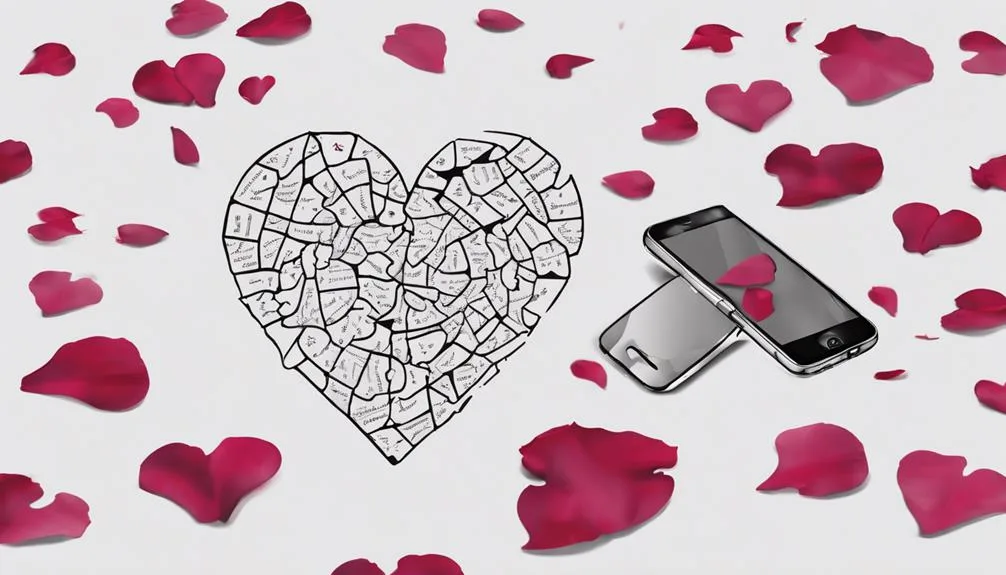
How does one confront the harsh reality of infidelity in a relationship, a clear sign it may be time to walk away?
Infidelity strikes a devastating blow to the trust and commitment you've built. It's a betrayal that begs you to reconsider your worth and the value you place on loyalty. Facing this truth isn't just about dealing with the immediate emotional turmoil; it's also about your journey toward self-respect recovery.
You'll likely grapple with the social stigma attached to leaving over infidelity, but remember, prioritizing your well-being and dignity is paramount. It's a tough road, but reclaiming your self-respect after such betrayal is essential. It's about honoring your worth and refusing to settle for less than you deserve.
Conclusion
Facing constant disrespect, trust issues, and unhappiness signals it's time for change.
Misaligned life goals, draining arguments, and any abuse underline you deserve more.
The presence of infidelity or lack of support further highlight the need to prioritize your well-being.
It's important to remember your worth and not compromise on happiness.
What steps will you take towards prioritizing yourself and your future?

